
The Parable of the Mustard Seed Bible story for kids YouTube
The Parable of the Mustard Seed is a short one: "The kingdom of heaven is like a mustard seed, which a man took and planted in his field. Though it is the smallest of all seeds, yet when it grows, it is the largest of garden plants and becomes a tree, so that the birds come and perch in its branches" ( Matthew 13:31-32 ).

What Is the Meaning of the Parable of the Mustard Seed in Matthew 133132? Matthew 1332
The Parables of the Mustard Seed and the Yeast - He told them another parable: "The kingdom of heaven is like a mustard seed, which a man took and planted in his field. Though it is the smallest of all seeds, yet when it grows, it is the largest of garden plants and becomes a tree, so that the birds come and perch in its branches." He told them still another parable: "The kingdom of.

The Parable of the Mustard Seed Lesson Plan & Activities
The Parable of the Mustard Seed is one of the shorter parables of Jesus. It appears in Matthew ( 13 :31-32), Mark ( 4 :30-32), and Luke ( 13 :18-19). In the Gospels of Matthew and Luke, it is immediately followed by the Parable of the Leaven, which shares this parable's theme of the Kingdom of Heaven growing from small beginnings.

What is the Meaning of the Parable of the Mustard Seed Kingdom Bloggers
31 He told them another parable: "The kingdom of heaven is like a mustard seed, which a man took and planted in his field. 32 Though it is the smallest of all seeds, yet when it grows, it is the largest of garden plants and becomes a tree, so that the birds come and perch in its branches."

What is the Meaning of the Parable of the Mustard Seed (Matthew 133132)? Bible Study Videos
Story Overview: Jesus said that the kingdom of God is like a little mustard seed. When this little seed is planted it grows into a huge plant, many times the size of the little seed. Background Study: This parable is a great one for children. Often children feel very insignificant in the church.
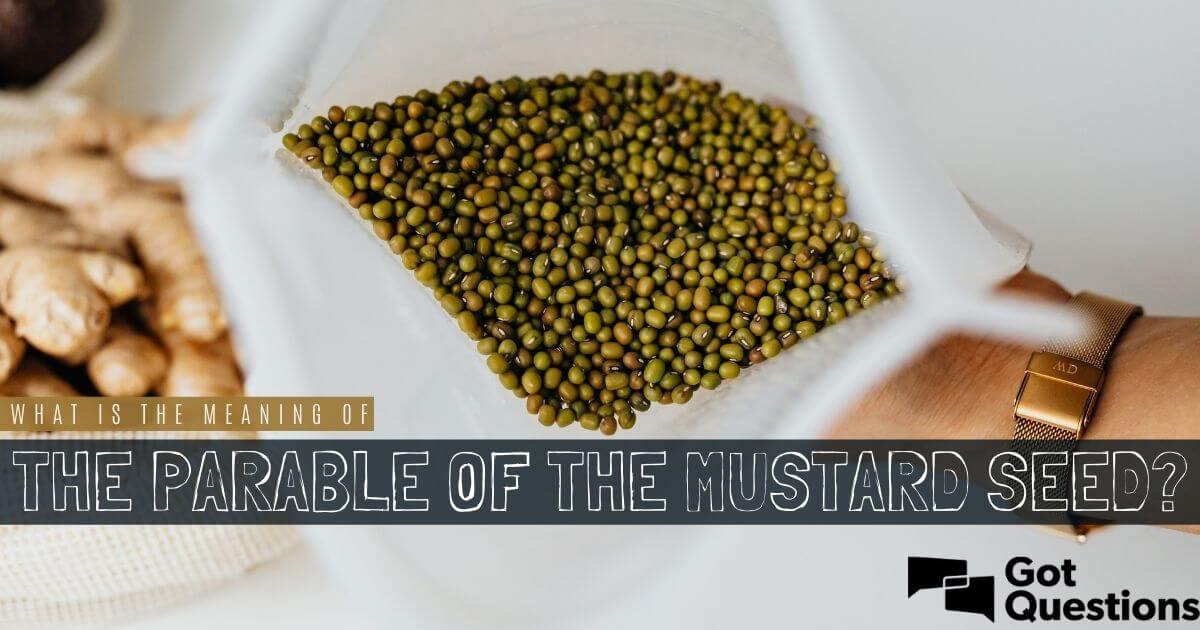
What is the meaning of the Parable of the Mustard Seed?
The parable of the mustard seed is one that is pregnant with meaning for the believer. Jesus used a lot of parables to teach people during His earthly ministry. Parables are stories used to depict a moral, or in Jesus' case, a spiritual lesson. One of His shortest ones is the parable of the mustard seed.
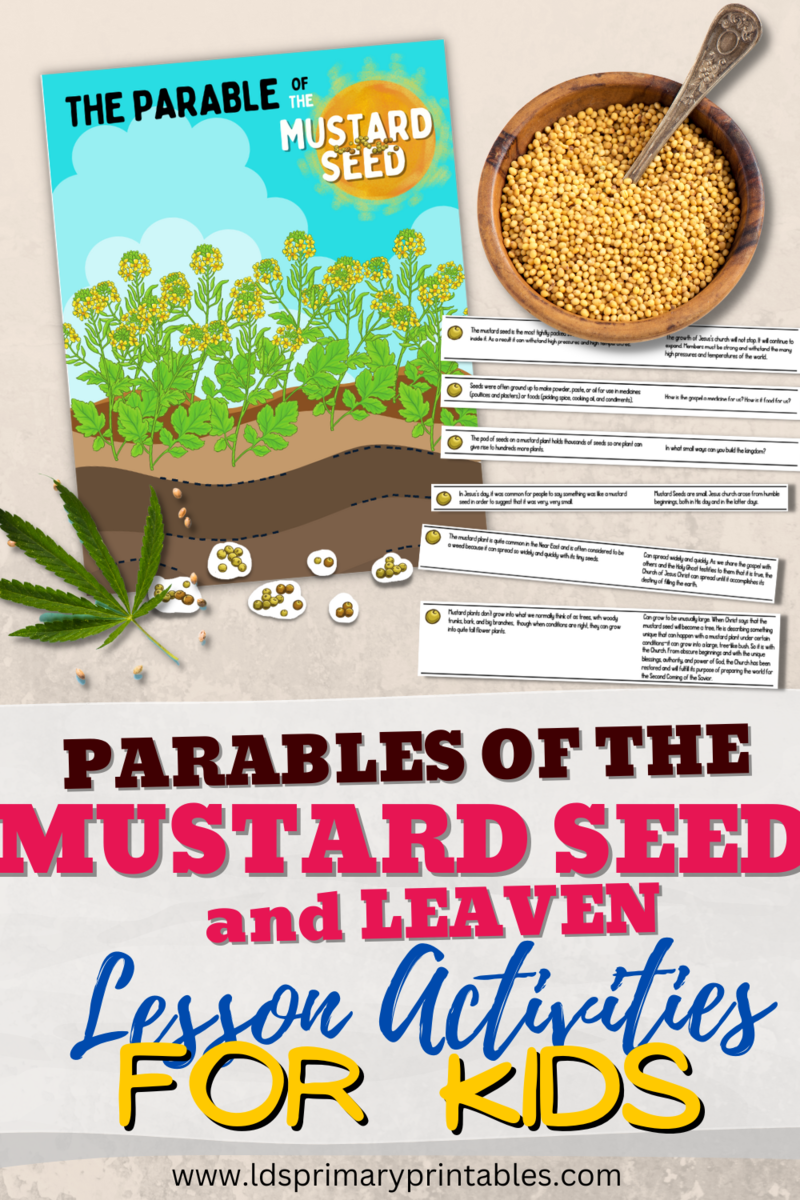
Parable of the Mustard Seed & Leaven Bible Parable Lessons for Kids
The Parable of the Mustard Seed is a short parable of Jesus Christ, which has been interpreted by many in many ways. This SpiritualRay post explains the meaning of this parable in brief, also noting all the possible deviations in its interpretation. Did You Know? Jesus has used the example of the mustard seed twice in the Bible.

Pin on Bible Boosts
Meaning Behind the Parable of the Mustard Seed? One of the smallest seeds, the mustard seed, eventually develops into a big tree. This growth serves as a reminder of the value of starting small, being humble, and being straightforward in our spiritual path. Read Also: Do You Have to Be Baptized to Go to Heaven?

The Parable of the Mustard Seed in 2020 Mustard seed, Mustard, Seeds
What does the parable of the mustard seed mean? When and where did Jesus give it? In a rare Biblical occurrence, the mustard seed parable is given on two separate occasions. The first time it was given took place between the second (28 A.D.) and third (29 A.D.) Passover seasons of Jesus' ministry (Matthew 13:31 - 32, Mark 4:30 - 32).

The Parable of the Mustard Seed YouTube
The Mustard Seed parable is found in Matthew 13:31,32 and Mark 4:30-32. And the mustard seed itself is mentioned in Luke 17:6. The mustard seed ( Sinapis nigra) or black mustard, grew wild and was cultivated in Palestine. It was used as a spice. In Jewish literature, because of its size, the mustard seed is frequently used to refer to smallness.

The Parable of the Mustard Seed Meaning YouTube
The Meaning of the Parable of the Mustard Seed: A Profound Lesson from Jesus Christ The Parable of the Mustard Seed is one of the most well-known and cherished teachings of Jesus Christ. Found in the New Testament of the Christian Bible, it is a concise and powerful story that imparts deep spiritual wisdom.
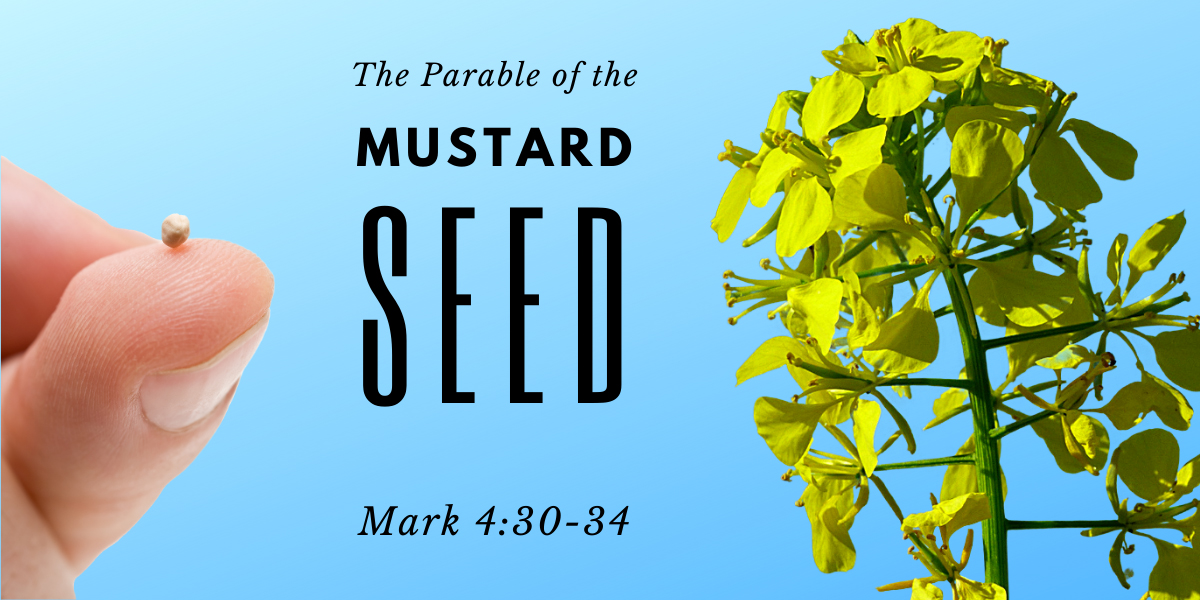
The Parable of the Mustard Seed (Mark 43034) Christ Fellowship
Verses 31, 32. - The parable of the mustard seed. Parallel passages: Mark 4:30-32; Luke 13:18, 19.The central thought of the parable is the growth of the kingdom of heaven considered externally. Although it has small beginnings, it is to have a marvellous expansion, so that even those who naturally are outside it are glad to avail themselves of its protection.

The Parable of the Mustard Seed Rutherford Church of Christ
The mustard seed parable lands within a chunk of the Lukan gospel which is specifically taken from Q (9:51-18:14). Thomas on the other hand reflects the Markan source almost entirely. Luke's introduction expresses a wish to present an orderly narrative which would benefit those who have some knowledge already about the Christian faith. He.
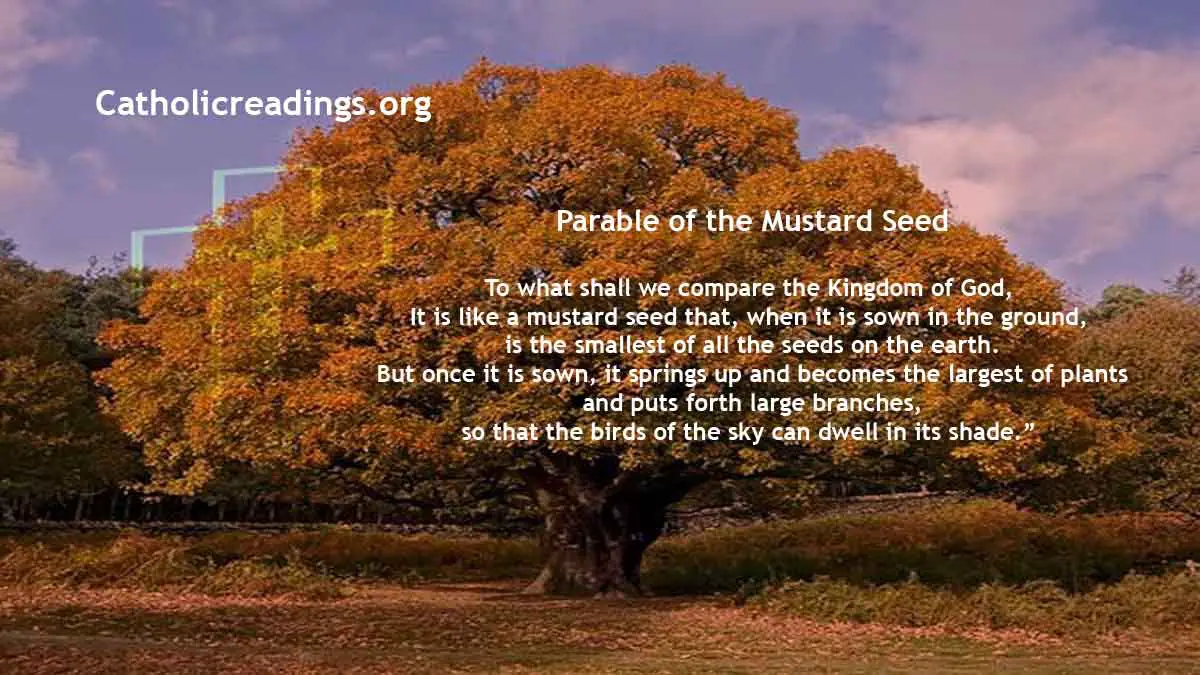
Parable of the Mustard Seed Mark 43032, Matthew 133135, Luke 131821 Bible Verse of the Day
31 He told them another parable: "The kingdom of heaven is like a mustard seed, which a man took and planted in his field. 32 Though it is the smallest of all seeds, yet when it grows, it is the largest of garden plants and becomes a tree, so that the birds come and perch in its branches." Read full chapter Matthew 12 Matthew 14
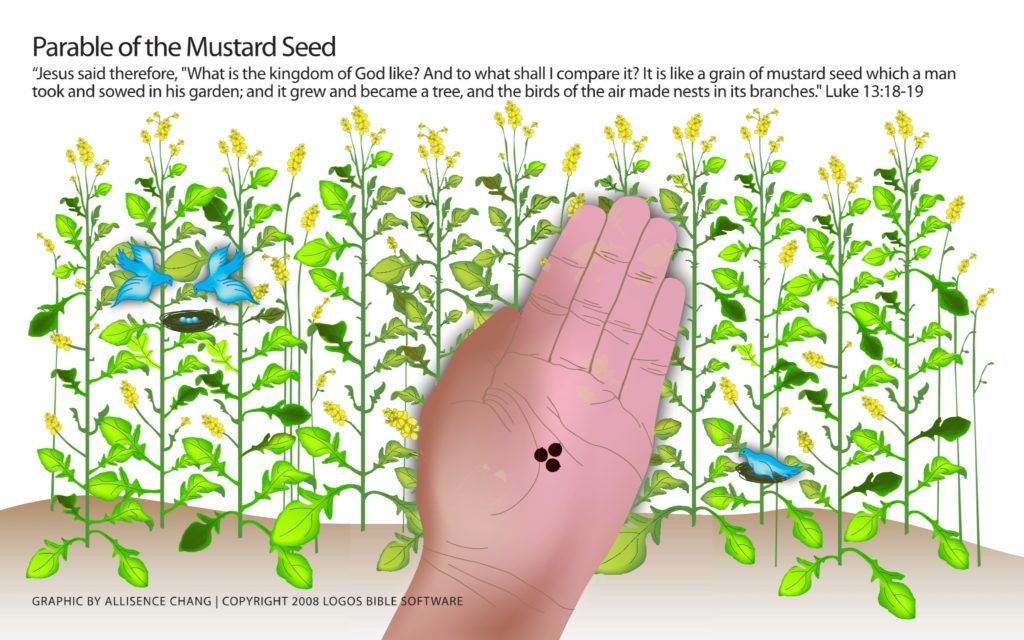
42 Parable of the Mustard Seed The Scripture Says
The mustard seed, once taken root, is impossible to overcome with brute force, incessant weeding, or every attempt to shun its presence. The greatest of beautiful, yellow, home-to-birds shrubs is, in this parable, revealed to be no more than a noxious weed. Underneath Christ's Parable of the Mustard Seed in Matthew lies this newer parable.
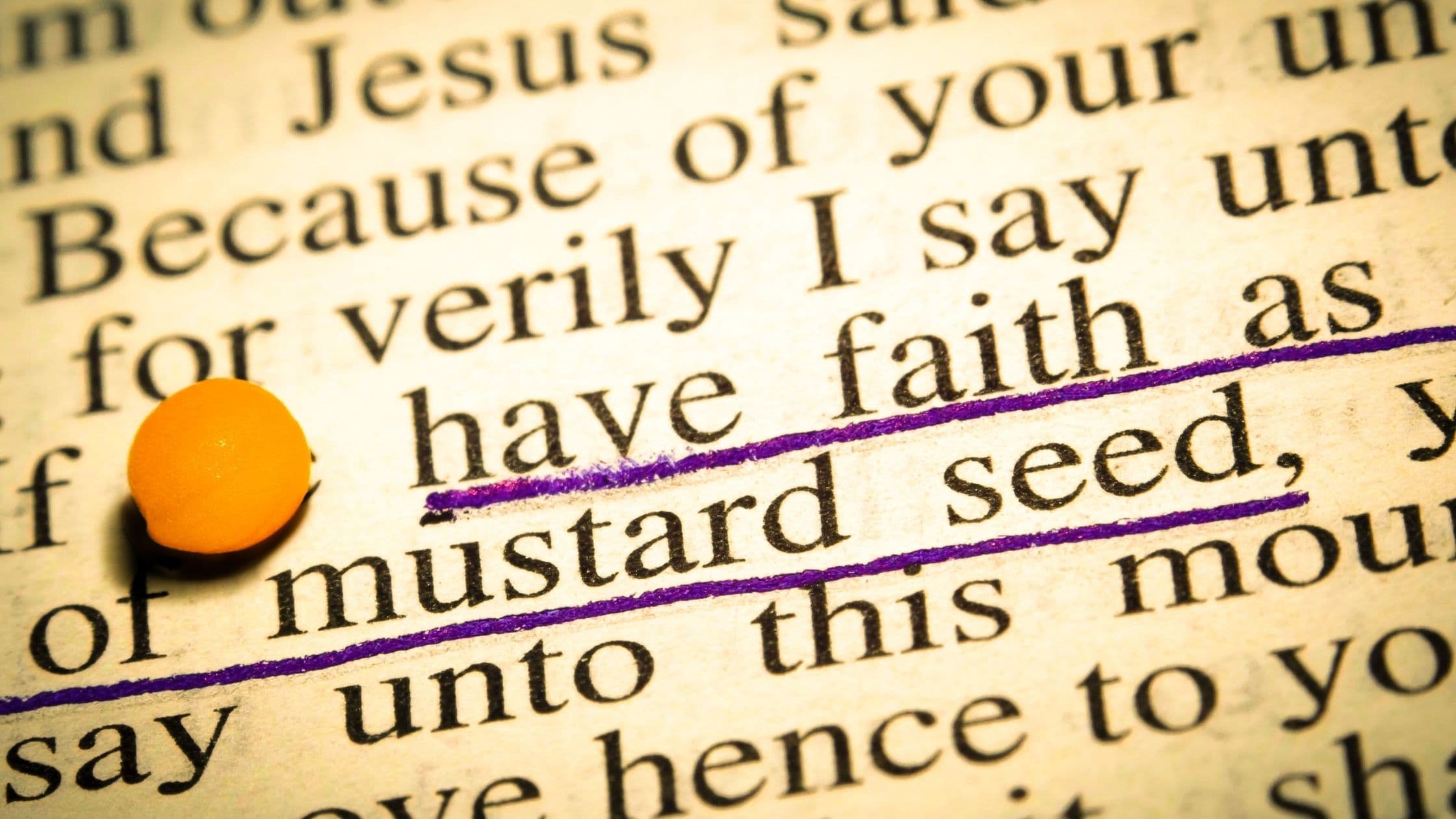
What is the Meaning of the Parable of the Mustard Seed Kingdom Bloggers
The Parable of the Mustard Seed is a story with timeless lessons intended to teach a concept or "big idea" to Christians. By using narrative elements that are common, representative, and easily recognizable, Jesus demonstrates His wisdom in explaining spiritual principles with simplicity. However, an emphasis on the details or literal.